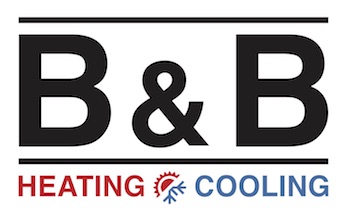
Buying your first home is an exhilarating experience. You’re probably trying to keep track of numerous details to ensure you’re making the right choice. We believe that understanding your potential new HVAC system is vital. The property’s HVAC system represents a substantial investment and source of potential long-term costs, so being thorough should be a top priority for first-time homebuyers.
In the following guide, we’ll share seven tips for learning everything you can about a home’s heating and cooling system. And if you want a more in-depth opinion from the pros, consider calling B & B Heating & Cooling. Our experienced team can help you compare your options with industry insights that are second to none.
1. Which Kind of HVAC System Does the Home Use?
Start by determining what type of HVAC system the home includes. Furnaces generally last longer compared to air conditioners, and some of the latest types of HVAC equipment like heat pumps feature average life spans longer than ever. Getting the details on the make and specific model ensures you have a clear understanding of how much routine maintenance it might need.
2. How Old Is the Current HVAC System?
It’s just as smart to learn how old the HVAC system is when you're looking at a potential new home. For the most part, HVAC systems tend to run for about 10-12 years. Knowing when it was installed helps you prepare for any needed servicing or when it might shut down for good. Older systems may be more vulnerable to problems, so fiscal planning for a replacement unit might be needed faster than expected.
3. What Does the Warranty Cover?
Don’t forget to look into whether the HVAC system is still under warranty. If it is, that's great news because it can help with maintenance expenses. HVAC warranties often cover parts and labor, but the details in each policy will vary. Don’t forget to look into any terms you don’t recognize to ensure you understand your coverage and the likelihood of out-of-pocket costs.
4. Does the System Have a Documented Maintenance History?
Don't forget to check the maintenance history of the HVAC system, if this kind of history is available. This service history can demonstrate if the system constantly broke down or how often a tune-up was scheduled. Inquire about key tasks like filter changes, which is a positive sign indicating regularly scheduled tune-ups.
5. What Are the Energy Efficiency Ratings?
Finding a home that features an HVAC system with high energy efficiency isn’t just smart; it leads to more manageable utility bills and a smaller environmental impact. Look for the seasonal energy efficiency ratio (SEER) ratings for air conditioning as well as the annual fuel utilization efficiency (AFUE) for furnaces. The higher the SEER rating, the more efficient the cooling over the whole season, while high AFUE ratings indicate that the fuel is more effectively burned for useable heat.
6. Did You See Any Problems After Completing an Informal Inspection?
Even if you don’t have experience in HVAC systems, you can still take a moment to examine the HVAC system yourself. Keep an eye out for signs of problems that weren’t mentioned by the seller or real estate agent. This can mean bizarre noises, stubborn patches of the house that are too hot or cold and attempts to hide any obvious damage.
7. Have You Asked Your Local HVAC Professional?
If you're unsure about the condition of the HVAC system, it's never a bad idea to get input from trained HVAC technicians. They will be much more likely to catch things you may not know about, including leaks in the refrigerant, wiring issues or flawed ductwork.
A Consultation with B & B Heating & Cooling Simplifies Your Home-Buying Journey
Finding your first home ought to be exciting, and B & B Heating & Cooling wants to ensure that doesn’t change. Reach out with us at 314-325-7552. We can discuss how our HVAC services ease your mind, giving you what you need to make an offer with confidence.
